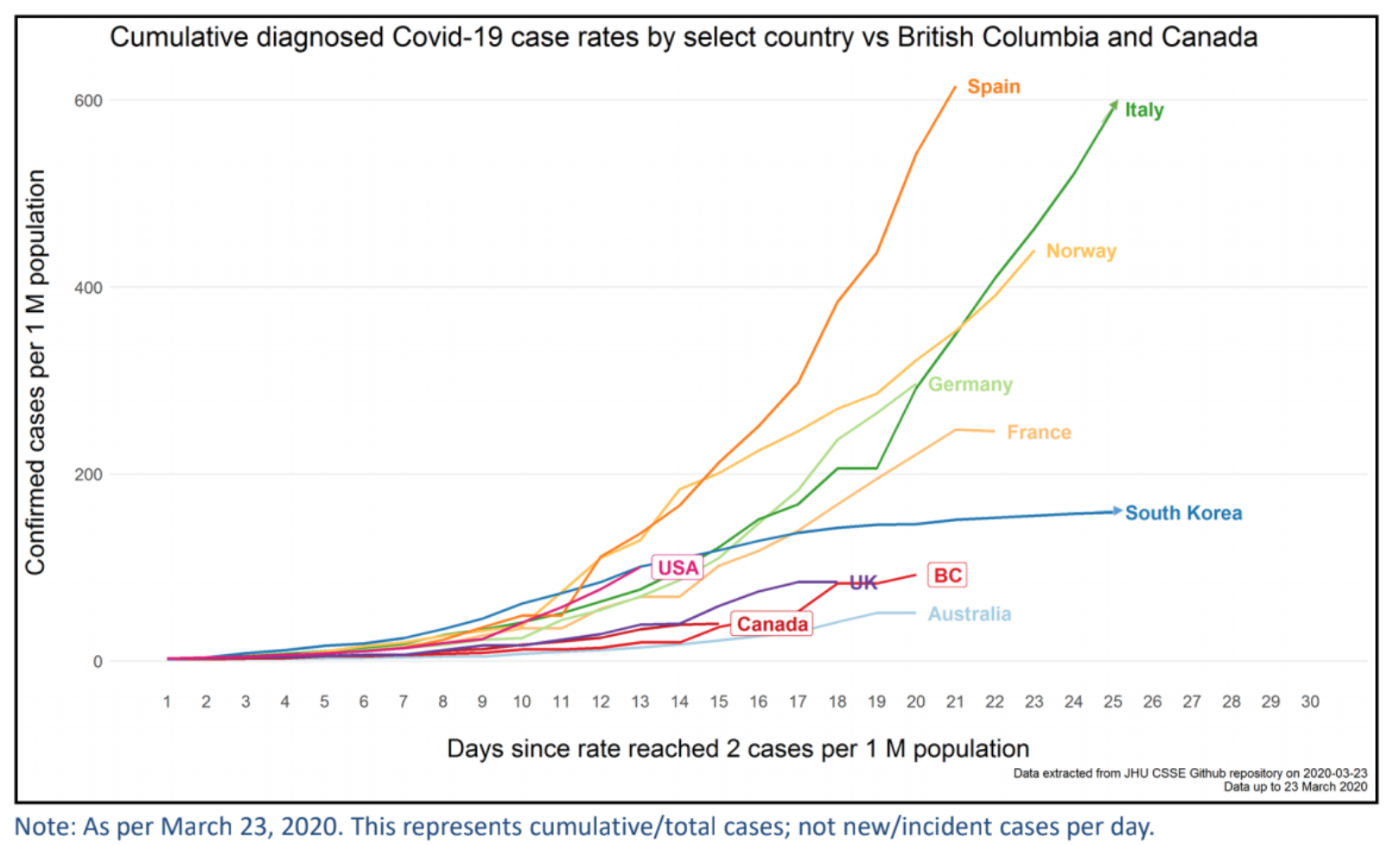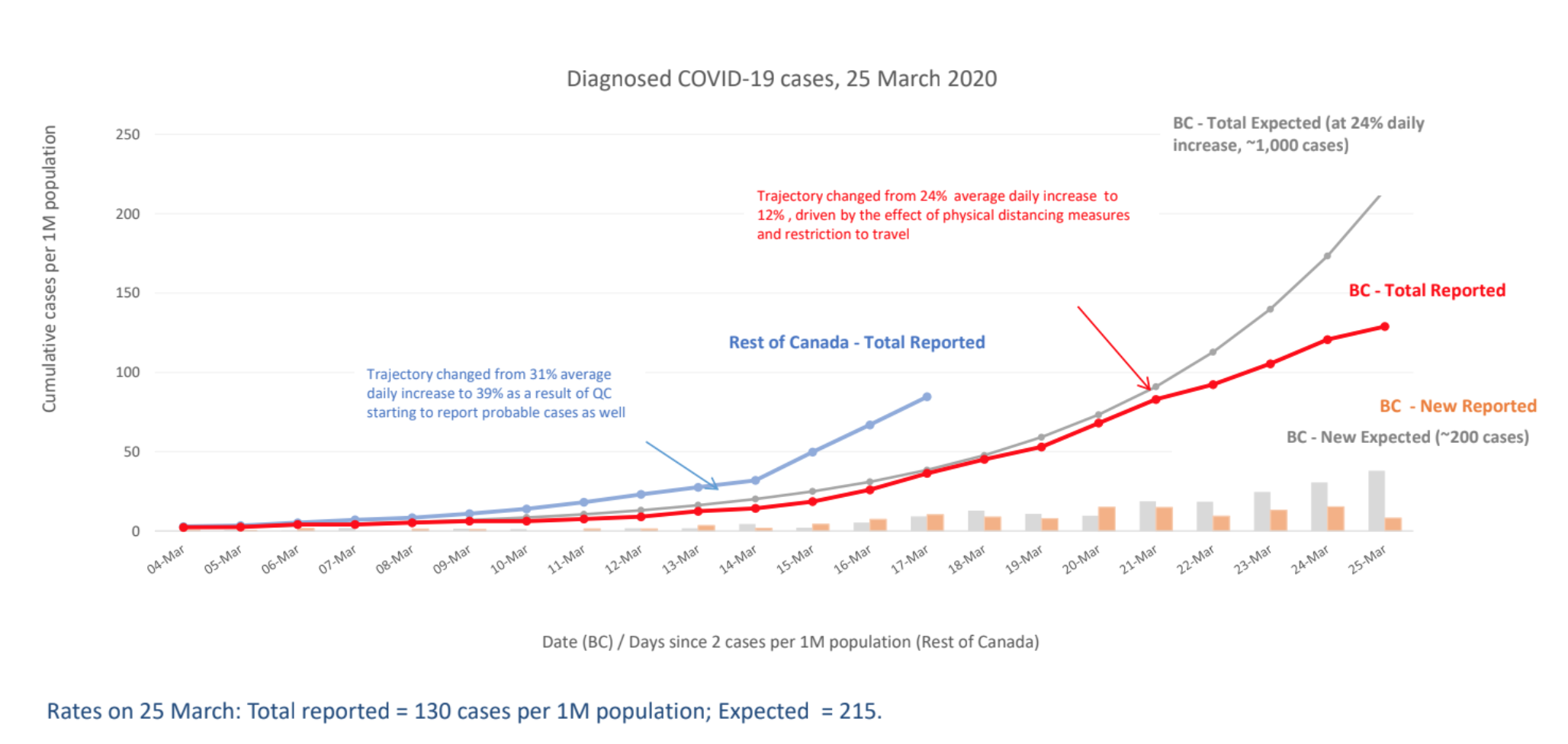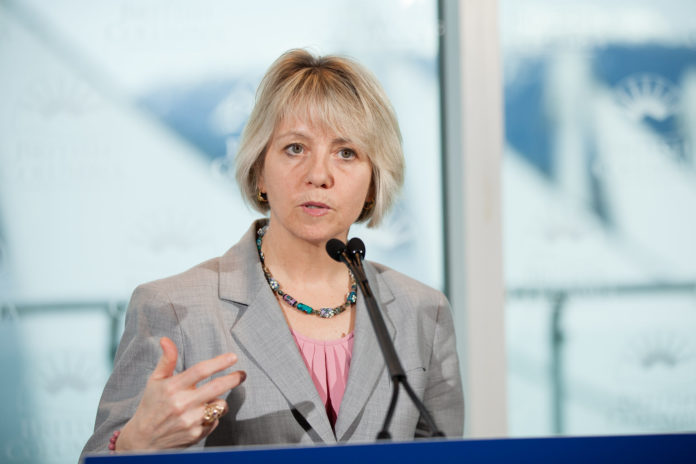In a briefing on Friday morning, provincial health officer Dr. Bonnie Henry and deputy health minister Stephen Brown expressed cautious optimism about British Columbia’s trajectory in flattening the COVID-19 curve.
“The rate of growth [of the virus] is being impacted in a positive way by measures taken in past few weeks,” said Dr. Henry.
“We’re not out of the woods yet and still need to track this carefully and still need to continue those measures.”
This statement is based on models of the virus’ growth in the province that compares it to the growth rates of the outbreak in other parts of the world like Italy, Hubei province, and South Korea.

The goal is to have cases plateau like they did in South Korea and avoid epidemics reach the levels they did in countries like Italy and Spain.
According to Dr. Henry, measures to prevent the spread of COVID-19 in B.C., like travel restrictions and restaurant closures, came into place between March 12th and 16th.
As the incubation period of COVID-19 is 14 days, the positive effects of measures enacted may not be seen until the end of March/early April.

Based on a model that charts the number of cases in the province, B.C. reported a shift in trajectory on March 22nd, as the average daily increase in cases reduced by half from 24% down to 12%.
As the days progress, the number of new cases found in B.C. have started to be lower than the number of cases authorities expect to see.
One factor may be that B.C. is not currently reporting probable cases of COVID-19 that have not been verified by testing, after authorities shifted the province’s testing strategy to focus on health care workers, long term care facilities, and community outbreaks.
This means many people who report displaying symptoms of COVID-19 are told they probably have the virus by health professionals, but remain untested and therefore are not recorded.
As shown in the diagram above, Canada’s trajectory for COVID-19 shifted and rose by 8% after Quebec started reporting their probable cases as well as those that have been confirmed.
However Dr. Henry believes that while not testing enough people has had some effect in the rate of COVID-19 spread in the province, stringent physical distancing and self isolation measures are the main causes for the changes seen thus far.
“We’re not at the point yet where it’s bending the curve. There are many things that can make this trajectory can shoot up again,” she added.
See all the latest updates about the global COVID-19 pandemic on Vancouver Island
Based on the latest updates, there are now 725 cases of COVID-19 in B.C. including 52 on Vancouver Island.
The federal government recently announced an $82 billion assistance package for Canadians and businesses struggling financially during the global pandemic. This was followed by a $5 billion relief package announced by the B.C. provincial government.
This includes a $2,000/month package for four months for all Canadians who have lost income due to COVID-19, and $500/month assistance package for renters in B.C..
The provincial government also announced the indefinite suspension of all in-person classes at K-12 schools in B.C., closure of all bars and restaurants, and a moratorium on evictions among other steps to enforce social distancing measures.
Canada has tightened its borders and is denying entry to people who are not Canadian citizens or permanent residents in Canada.
U.S. citizens are no longer an exception to this rule, and non-essential travel between U.S. and Canada has been temporarily banned as of March 21st. Moreover international flights have now been restricted to international airports in Toronto, Montreal, Vancouver, and Calgary.
The BCCDC has set up a 2019 novel coronavirus telephone information line at 1-833-784-4397 for those who have further questions about this disease.
Anyone concerned that they may have been exposed to, or are experiencing symptoms of the novel coronavirus, should contact their primary care provider, local public health office, or call 8-1-1.
The Province has also created the 1-888-COVID-19 line to connect British Columbians needing non-medical information about the coronavirus pandemic.
As of the time of publication, the total number of COVID-19 patients worldwide has risen to 566,064.
Over 25,422 people have died from the illness and 129,353 have made a full recovery.



